CULTURAL INSIGHTS:
The 4 Balinese Names
All Balinese people are named one of just 4 names: Wayan, Made, Nyoman or Ketut. Both men and women.
Isn’t that amazing?
To get a better feel for the implications of this naming strategy, imagine that every single citizen of your own country- such as USA or Canada or UK- were all named either Chris, Jamie, Robin, or Micky. Both men and women.
Imagine if everyone in your family, plus everyone you were related to, plus all your friends, plus everyone you went to school with, worked with, dated, met in daily life… every single person in your entire country had just one of 4 names.
Almost unimaginable, right?
All sorts of questions immediately spring to mind. Why? What’s the purpose? Isn’t it terribly confusing? How could you keep everyone straight? If you called out, say, ‘Chris’ would 20 people come running?
In Bali, Indonesia, such a 4-names-only system is entirely real and intact. Here’s how it works:
Every Balinese child is simply named by his or her order of birth. The first born, boy or girl, is Wayan. The second born is Made (pronounced ma day). The third born is Nyoman. And the 4th born is Ketut. That’s it, simple and sweet. If nothing else, it certainly makes naming ones children easy. LoL
Women are given the honorific ‘Ni’ before their name, as in Ni Wayan. It’s much like ‘Miss’ or ‘Mrs’. Men use ‘I’, as in I Wayan, much like ‘Mr.’
So, here’s a question for you… What happens when a Balinese family has 5 children or more (which is actually quite common in rural Bali)? Believe it or not, the parents simply start over again with ‘Wayan’! I kid you not.
I personally know a Balinese man with 11 siblings, 12 kids in all. He is the 3rd Wayan child in his family. Two of his other siblings before him are also named Wayan!
Actually, I exaggerate slightly about the 4 names ONLY. A few versions of these 4 names do exist and are also used quite commonly.
The first born child could alternately be named Putu (though that name is traditionally reserved only for upper caste families).
The second child could be named Kadek instead of Made.
The third could be Komang, or even NgNga (a very rural name) instead of Nyoman.
However, the 4th child (and multiples of 4th) is destined to be Ketut, and only Ketut.
A first born boy could alternately be named Gede. A first born girl could be Iluh (pronounced Ee loo).
Among the top Brahmin caste, the sons have the honorific Ida Bagus placed before their name, as in Ida Bagus Putu or Ida Bagus Made. For Brahmin caste girls the honorific, Ida Ayu, is added, as in Ida Ayu Nyoman.
Pondering the reasoning behind such a strange system, I had always assumed the Balinese believe that a person’s order of birth is of huge significance for some reason or other.
I figured that they must believe that each birth-order child has particular characteristics, personalities, and/or roles in family life. I imagined that perhaps the first born would inherit the family fortunes, while the youngest was destined to toll in the kitchen. Or some such.
I finally asked several Balinese friends and acquaintances the meaning behind their name system. Nobody seems to know! They only know it’s time-worn tradition. Furthermore, they all assure me that each child has equal value, equal expectations within the family.
No child has specific family duties, roles, or obligations. None are believed to have certain personalities or characters. The only tradition concerning children is that only sons inherit the family’s assets, which are usually spread equally between all the sons. Daughters receive nothing. Hmph!
Pondering how they keep everyone straight, I’m told that they refer to each other by family name or nickname rather than given name. Nicknames are acquired the same way we westerners acquire nicknames- by our interests, quirks, talents, personalities, or unique qualities.
While Balinese refer to each other by their nicknames or family names, they generally introduce themselves to tourists by their given name.
So, when you visit Bali, expect to meet A LOT of Wayans, Mades, Nyomans and Ketuts. Good luck keeping them straight! You could always just guess and be assured a 25% chance of guessing correctly. Lol
QUESTIONS:
What do you think about this naming system?
Do you know any other cultures with unusual naming systems?
* I’d like to thank Ms. Nenek Putu and the other staff at Luhtu Coffee Shop in Sanur, Bali for their help with this story. Thanks everyone! cheers, Lash
If you’re interested in more Balinese culture, you might enjoy:
Gamelan: Bali’s Traditional Percussion Orchestras
Arak and Tuak: Bali’s Locally Brewed Moonshine
———————————————————————————————–

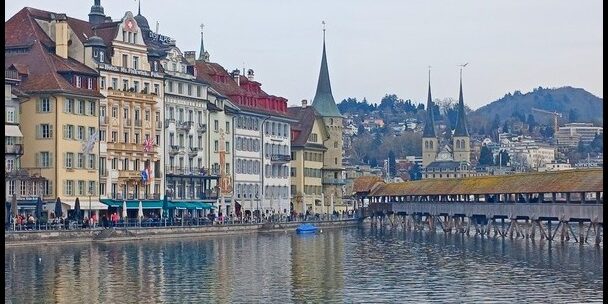
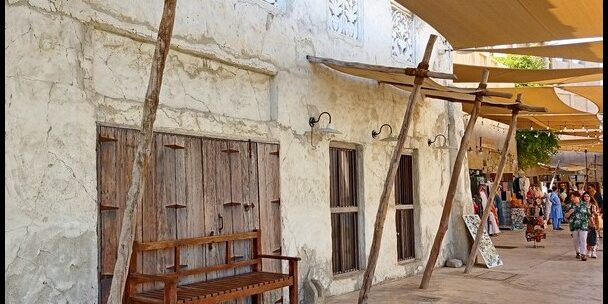


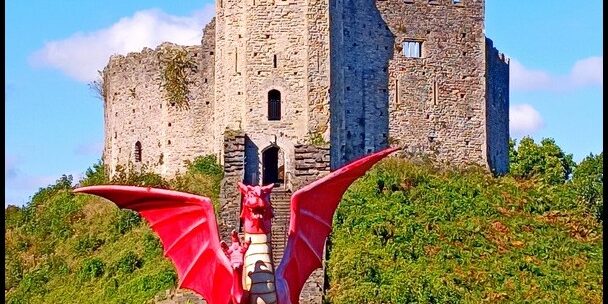

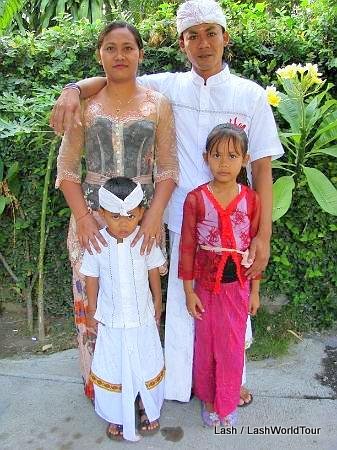

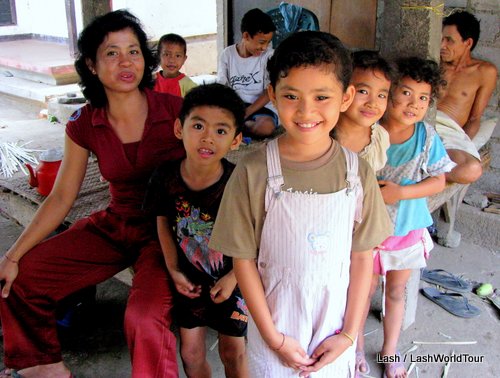
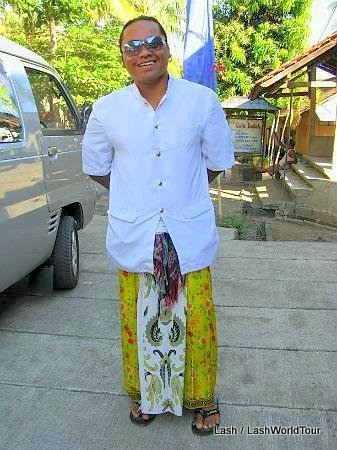
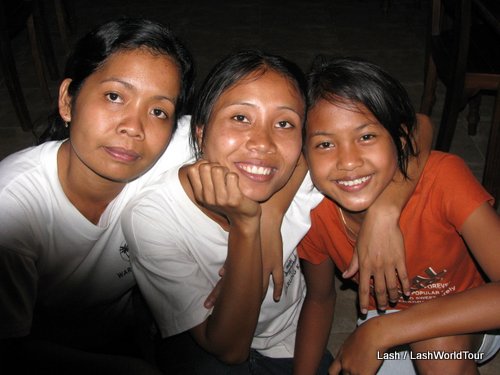
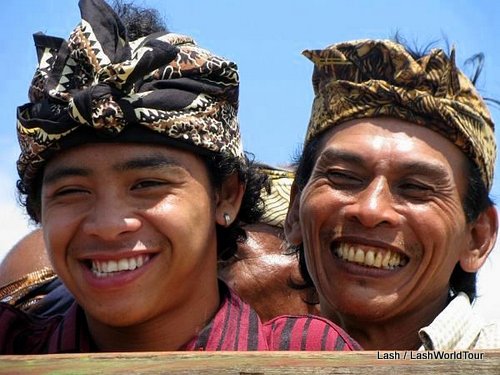
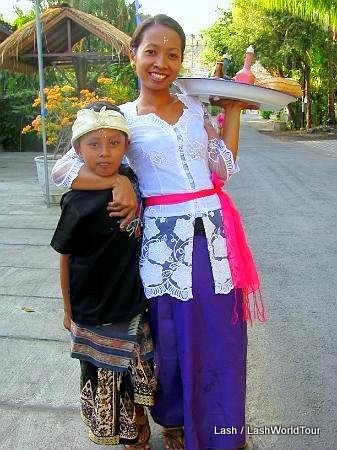
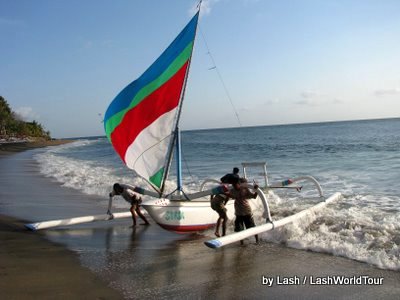
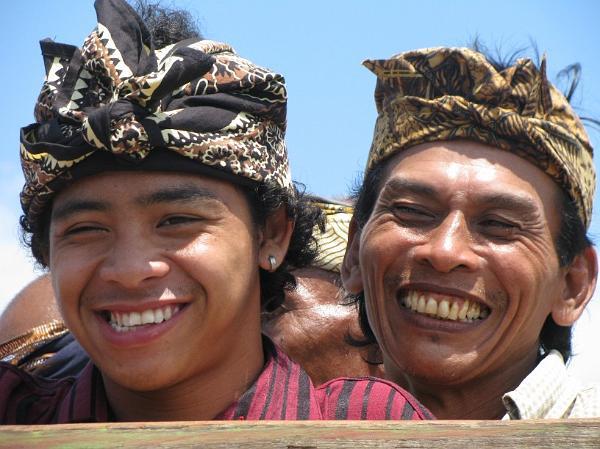
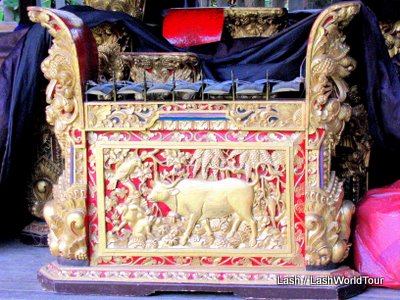
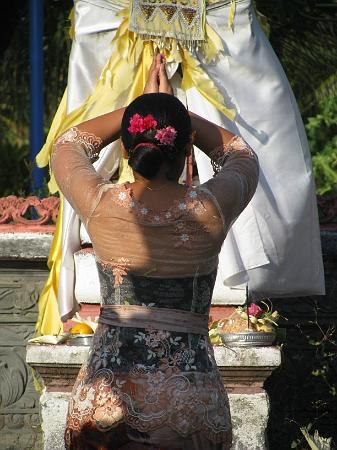

 Hi! I'm Lash, an American nomadic world traveler who's been traveling solo since 1998. I’m passionate about traveling the world nomadically and then sharing it all with you. I hope to inspire you to travel the world, to entertain you with tales from the road, and to help you reach your travel dreams. Welcome!
Hi! I'm Lash, an American nomadic world traveler who's been traveling solo since 1998. I’m passionate about traveling the world nomadically and then sharing it all with you. I hope to inspire you to travel the world, to entertain you with tales from the road, and to help you reach your travel dreams. Welcome! 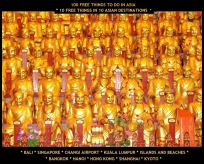


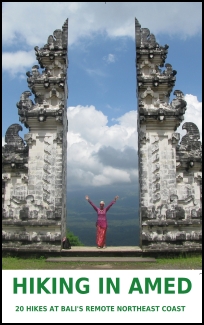

38 pings
Skip to comment form ↓
Travel Bloggers Best Dozen Project - LashWorldTour » LashWorldTour
2013/01/09 at 2:04 pm (UTC 8) Link to this comment
[…] is certainly a better written story of travel adventures.10. Best cultural perspectives or insights: The Four Balinese NamesIt’s hard to believe that all Balinese people have 1 of just 4 names. Their naming system is […]
PHOTO GALLERY: Bali's Dramatic Cremation Ceremonies - LashWorldTour » LashWorldTour
2013/04/08 at 6:17 pm (UTC 8) Link to this comment
[…] LashWorldTourTravel Blog offering Cultural Insights, Travel Tips, and Tales of Adventure from 14+ years of world travelsHOMEABOUTAbout LashWorldTourAbout LashContactWhat’s in a name?LashWorldTour Travel MapLash’s Travel Fast FactsMissionsWorld Travels Overview: 1991-2011PressDisclaimerCOUNTRIESASIABALI- INDONESIABalinese CultureDiving in BaliBicycling in BaliAmedSanurBali MiscBANGLADESHBRUNEICAMBODIASHANGHAI- CHINAHONG KONGINDONESIABaliJavaLombokJAPANLAOSMALAYSIAKuala LumpurPenangLangkawiBorneoDiving in MalaysiaMalaysia MiscMYANMARNEPALPHILIPPINESSINGAPORESRI LANKATHAILANDVIETNAMAUSTRALIAEUROPEENGLANDSPAINS AMERICABRAZILUSAAdventuresBicycle TravelCycling in Bali SeriesHikingMotorbike TravelScuba DivingSky DivingSurvivor TV CrewTravel DisastersWWOOFCruisesTravel TalesCulturePhoto GalleriesTravel Tips10 Free Things to do in… SeriesHow To Afford Long-Term World Travel SeriesWhy Living Overseas is Better SeriesAccommodation TipsFlight TipsLuxury Travel TipsMoney TipsSafety TipsMisc Travel TipsBeyond GuidebooksTravel ResourcesTRAVEL INTERVIEWSBook ReviewsHotel – Tour – Museum ReviewsLINKSTravel StoreFREE eBookTravel Books StoreLash’s Guidebooks to Bali wp_flash_img_show will display here (config: default)« Tallest Skyscrapers in the World PHOTO GALLERY: Bali’s Dramatic Cremation Ceremonies 2013/04/08 by Lash WorldTourDramatic funeral pyre at a Balinese Cremation CeremonyPHOTO GALLERY: Bali’s Dramatic Cremation CeremoniesThe Balinese people are Hindu. But their version of Hinduism is unique to the world. Among their numerous religious rituals, festivals and ceremonies, their mass cremation ceremonies are probably the most dramatic.Huge larger-than-life stautes of cows and other animals are built to serve as coffins for the deceased. On cremation day, dozens of men carry the huge floats along Bali’s narrow roads, amidst much loud shouting and gamelan percussion music, to a local funeral temple. After all the elaborate coffin statues have arrived at the temple, they are burned en masse in an intense, dramatic display.SEE FULL GALLERY———————————————————————————————————————————–You might also like: Photo Gallery: Balinese Gamelan MusicPhoto Gallery: Balinese Ceremonies Cultural Insights: The Four Balinese Names——————————————————————————————————————————————- /* /* Leave a Reply Cancel replyYour email address will not be published.Name:Email:Website:Message:You may use these HTML tags and attributes: <a href="" title=""> <abbr title=""> <acronym title=""> <b> <blockquote cite=""> <cite> <code> <del datetime=""> <em> <i> <q cite=""> <strike> <strong> […]
BALINESE CEREMONIES - LashWorldTour » LashWorldTour
2014/03/25 at 12:52 pm (UTC 8) Link to this comment
[…] Ceremonies – An Explanation Photo Gallery of Bali’s Dramatic Cremation Ceremonies The Four Balinese Names […]
What’s In A Name, Anyway? | Thought Catalog
2015/10/30 at 8:50 am (UTC 8) Link to this comment
[…] Balinese children in Indonesia, receive their names according to their birth order. In Ghana, children are giving a […]